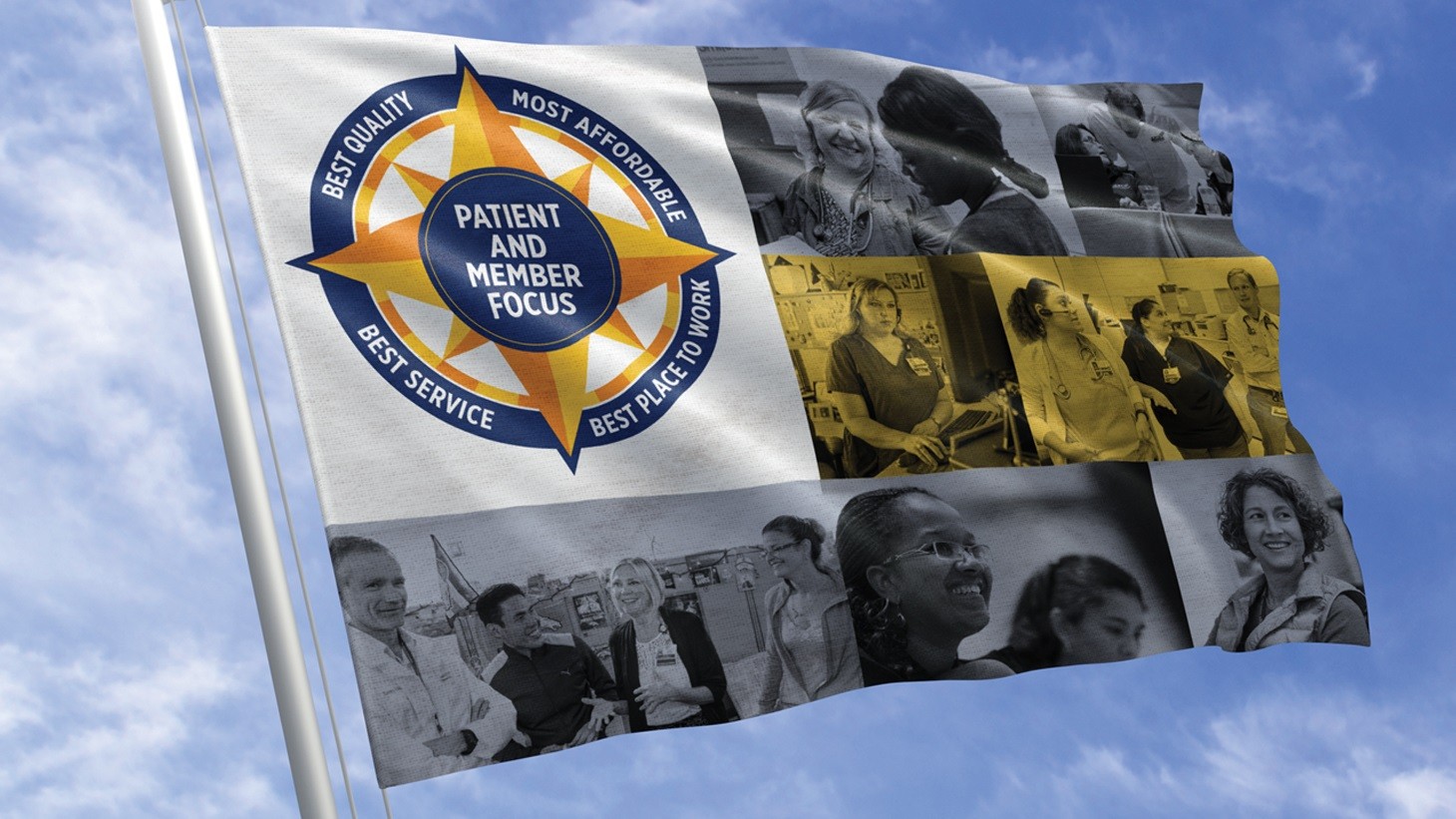Hank Q2/Q3-2017
See the whole issueEngaged, Enabled, Empowered

What can boost the impact of a good team? Regional leaders make a difference.
“My union members’ biggest passion is providing good service and high-quality care,” says Nate Bernstein, health care director of UFCW Local 7, which represents about 2,000 of Kaiser Permanente’s Colorado employees. “And we also know the company needs to be sustainable financially.”
But frontline staff can’t do it all on their own. Unit-based teams need leaders who share goals and strategy, helping them connect the dots between quality, service and affordability.
Knowing the difference such information can make to frontline workers, KP Colorado Health Plan President Roland Lyon provides regular, in-person updates on membership numbers, service scores, financial results and more.
He emphasizes a few key business goals, and he provides a vision: “The best way to deliver affordable care is to deliver high-quality care.”
Providing that high-quality, affordable care is everyone’s job, at every level. Local, regional and national KP leaders are, for example, revamping purchasing practices and taking advantage of tech innovations to keep a lid on the rising cost of care. In 2016, 4,800 UBT projects reduced expenses by more than $48 million, savings that help keep costs down for members. The sum may seem small in a $65 billion organization, but it speaks to a deeper commitment.
Leading change
“Workers know where the challenges are,” Bernstein says, “and have led change over the years to improve the patient experience and reduce costs.”
The challenges often directly affect workers. Colorado saw an influx of new members in 2014 and again in 2016. The region still is growing, but a big chunk of the new members left after a year because of changing market dynamics as well as internal service, access and cost issues.
“The ups and downs of membership growth create strains on our system—and it’s hard on ourteams,” Lyon acknowledges.
Lyon’s updates and other regional communications provide UBTs with information on the types of projects to take on to support Colorado’s strategy. To solve some of the access issues, for example, the region is making greater use of digitally enabled services, some of which were developed by frontline teams and some by leadership.
But success requires the know-how of the teams and, says Lyon, “engaged, enabled and empowered” team members to identify and remove barriers to service, pilot new approaches and help take waste out of the system.
The result is that UBTs in Colorado reduced waste or captured lost revenue to the tune of more than $9 million last year. And they’ve helped the region reduce its expense trend by nearly 1 percent.
But “you can’t cut your way to long-term success,” Lyon tells managers and workers. “You can’t really do more with less. And you can’t do it alone. But we can do more with a little bit more. It’s about providing more access to the best care to more people.”
